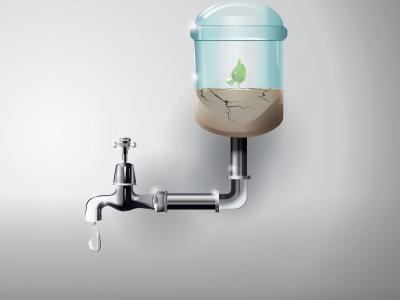Saving Water Starts with Knowing Where It Goes

Your company has set sustainability goals to increase the bottom line and feel good about doing it. To start saving water, you first need to know where you’re using it. Auditing your water usage is a great first step, as you’ll see all the places that water is used and make some changes that impact your bottom line along the way.
• Read your water bills to know how much you’re using in the first place. Two years of history are recommended to get a good picture of fluctuations and determine what steps will maximize the savings impact.
• Walk the facility. You need to know all the water consumers on site (cooling towers, boilers, irrigation systems, sanitation systems, laboratory equipment, etc.) so you can determine how much is used per system. Save time and document leaks on the way.
• Follow the pipes. Find out where the water comes in, and where it drains away. You need to know what equipment the water drained from to verify your equipment inventory.
• Talk to the users. Find out how often and how long a system runs. This will help with auditing where all that water on your bill went, and gives you an opportunity to discuss small changes to operations that can quickly impact water savings.
• Verify with water meters. Temporary water meters are inexpensive and easy to install, and provide valuable information when estimating water use.
Once you’ve got a baseline of usage, divide up those gallons based on your system estimates. You can see what percentage of water is used by each system. Cooling towers and mechanical systems are some of the largest water consumers in any building, and they also have the greatest potential for water savings.
Talk to your water treatment consultant about changes to your mechanical system treatment programs that focus on sustainability. Small capital investments in water softeners and a commercial RO system significantly impact water use. Better water leads to better system performance, better water usage, and a better bottom line.
For help with auditing your water use or evaluating mechanical system upgrades, contact Earthwise Environmental today.





